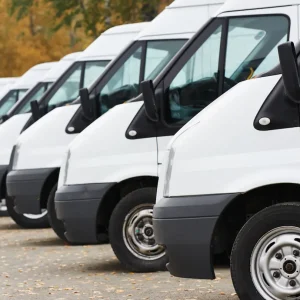A group of motor industry organisations has called for the UK Government to announce targeted plans and funding to support electric van adoption, ahead of this week’s Budget.
A letter to Chancellor of the Exchequer Rishi Sunak, supporting measures in the previously-published Van Plan from the British Vehicle Rental and Leasing Association (BVRLA), has been signed by that organisation, along with the British Retail Consortium, the Finance and Leasing Association, the Green Alliance, Logistics UK, the Renewable Energy Association, and Transport and Environment.
They argue that while vans account for 16% of UK road transport emissions, there is a significant disparity in progress between electric car and van adoption.
They say that while lower running costs make electric vans an appealing fleet option, the initial adoption costs are prohibitive to many, with the average purchase price 31% higher than with an equivalent diesel or petrol van.
In particular, they say smaller fleet operators and solo van drivers risk being left behind, unable to invest the same capital in electric van adoption as larger fleets.
Other concerns include charging infrastructure, which is said to have been targeted at cars, with many on-street chargers inaccessible to commercial vehicles.
The letter calls for additional ringfenced plug-in grant funding for vans beyond 2022-23, new grants and funding for van-specific charging points and locations, the abolition of the super-deduction exclusion for leasing and rental, additional supply chain research and development funds, and regulations designed to increase the supply of zero-emission vans.
BVRLA chief executive Gerry Keaney said: “Electric vans are the future, but for too long, the government has focused on one-size-fits-all solutions for electric vehicles.
“Zero emission vans are not yet affordable, accessible or feasible for many fleets and use cases.
“The sector needs a well-financed strategy with additional targeted fiscal support if we are to meet the 2030 phase out target. The measures laid out so far in the Transport Decarbonisation Plan and Net Zero Strategy do not go far enough.”





